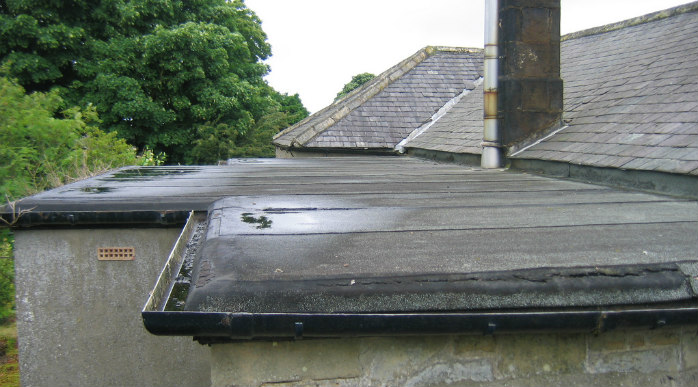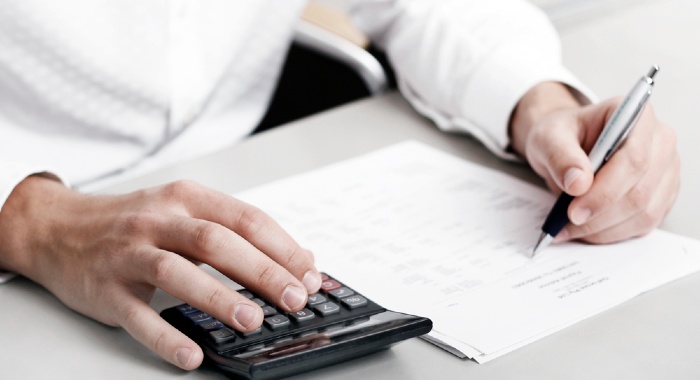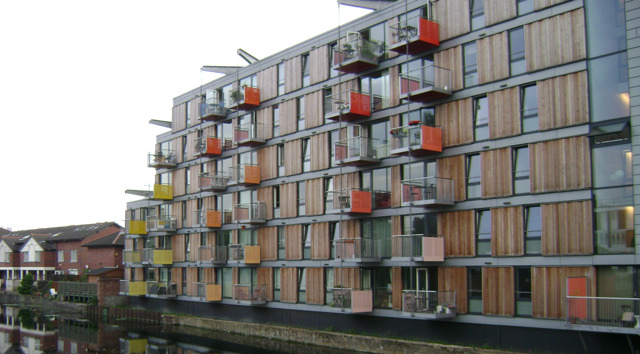If you’ve ever looked at buying a property, you’ve probably come across the term ‘freehold or leasehold’. But, what is the difference between freehold and leasehold properties?
It’s a fair question and a very important one too. One of the first questions a conveyancer will ask you is whether the house or flat you are buying or selling is a freehold or leasehold.
This is because, depending on which category the building falls into, the conveyancing process will either be straightforward or much more complicated!
Put simply, the difference between freehold and leasehold properties is ownership and control.
When you buy a freehold property: you own the building and the land it stands on until you decide to sell it. Most houses in the UK are sold as freehold properties.
When you buy a leasehold property: you own the building for a set number of years, but not the land it stands on. When the lease expires, the ownership of the property returns to the freeholder, unless you can extend the lease or buy the freehold.
Most flats and maisonettes in England, Northern Ireland and Wales are sold as leasehold properties.
So, let’s take a look at what you need to know about the difference between freehold and leasehold properties…
At A Glance: How Leaseholds And Freeholds Differ
| Leasehold Property | Freehold Property | |
|---|---|---|
| What you own | Property (flat or house) | Property and any land around it |
| Ownership duration | Set number of years | Until you decide to sell or pass it on |
| Alterations | Need permission from freeholder | No permissions needed |
| Responsibility for maintenance and repairs | Property itself leaseholder, rest freeholder | You are responsible for all maintenance and repairs |
| Fees, charges | Ground rent, service charges, leasehold extension fees, other fees | None |
| Conveyancing process | More complex and longer | Simpler and quicker |
| Solicitor costs | Higher | Lower |
| Purchasing price | Lower | Higher |
The Difference Of Ownership
The biggest and most impactful difference between a leasehold and a freehold property is ownership. This includes what you actually own, but also for how long.
Buying A Property? FREE Step-By-Step Platform
What You Own
If you purchase a freehold property, you buy the entire rights to the physical building and the land upon which it sits.
Acquiring a leasehold means that the freeholder of the building and land is granting you the rights to use the building for however many years are left on the lease. This makes it a kind of hybrid between renting and owning it.
What you actually lease with a leasehold is the property, but not the land it sits on. In the case of a flat, you don’t own the whole building, only the flat itself.
All of the properties we’ve bought to live in ourselves have been freehold. That’s largely because we’ve never had a flat as a home and most (but not all) houses are freehold.
Freehold certainly makes things less complicated and we’ve always preferred freehold properties over leasehold ones.
How Long You Own It

A freehold property is yours outright until you decide to sell it or pass it on to someone, through a will for example.
In contrast, a leasehold property only belongs to you for the duration stated in the leasehold contract. Since the Leasehold and Freehold Reform Act 2024 has become law, the standard duration for a leasehold is 999 years.
This means that if you buy a new leasehold property from the freeholder, it has to have 999 years. But if you buy a property from a leaseholder, you take over their lease with the duration remaining, which could be much less.
The reform act has also abolished the need to have owned the property for at least 2 years before you can extend it or buy the freehold. Which means you can do it as soon as the sale is through. However, this will come at a cost.
If the lease has less than 80 years left, extending or buying the freehold should be cheaper now that the bill has been passed into law. For longer leases this isn’t the case.
Extending a lease can cost several thousand pounds and you also have to pay solicitor charges, valuation and other fees. So it’s not a cheap affair. The Leasehold Advisory Service calculator can help you figure out how much it should cost.
Many of the flats we have encountered during our investment journey have been leasehold. It’s often our first question to the selling agent – is it a leasehold property?
If it is, we always ask next how long is left on the lease. The answer to this can be the difference between whether we’ll buy the property as an investment, or if we’ll walk away.
Should you need additional advice, there is a Government funded Leasehold Advisory Body you can consult with.
Control Over The Property Differs Too
With the difference of ownership comes also a difference in control over the property. As a freeholder you have full control over your property and land. In contrast, a leaseholder only has limited control over what they can do with their home.
Works And Alterations
If you buy a freehold property, you can do with it what you want. You can extend it, given you have the relevant planning permissions, you can knock down walls and you can re-landscape your garden however you want.
As a freeholder you are much more restricted, because you don’t own the property outright. While you can do small, cosmetic works, like painting the walls, major works, like extensions need permission from the freeholder.
And because you don’t own any of the outside space, you can’t just get gardening as you wish or put a shed up. Again you will need permission from the freeholder.
Maintenance And Repairs

So far, freehold properties have more benefits, right? Well, in one respect, leaseholds have the edge. When it comes to maintenance, leaseholders have fewer responsibilities and costs than freeholders.
If you own your home outright, you alone are responsible for the upkeep of the building and the land upon which it sits. So if a fence needs replacing or the roof is in need of repair, it’s up to you to take care of it and pay for it.
As a leaseholder you’ll usually be responsible for the maintenance and improvement of the property itself, but the surrounding communal areas (in the case of flats) are usually the freeholder’s responsibility.
So you are responsible for maintaining and repairing things inside your property, including plumbing, electrics, floors, etc.
The freeholder is responsible for the upkeep of the structure and integrity of the building, as well as any communal areas (in blocks of flats) and outside spaces.
What exactly the maintenance and repair responsibilities are will be set out in the lease contract and they can differ from leasehold to leasehold. You should seek legal advice to make sure you fully understand your responsibilities before buying a leasehold property.
While this is great news for a leaseholder, if their freeholder doesn’t do the necessary repairs, it can lead to disputes, which can be a source of stress and costs.
Difference In Fees And Charges
One vital difference between freehold and leasehold properties is the fees and charges that are due. When you buy a freehold property, once you paid the fees associated with buying a property, you don’t have any further fees or charges to pay.
But with a leasehold, you will have certain annual or monthly fees to pay to the freeholder of the building.
Service Charges
These are monthly charges for the upkeep of the building and grounds, such as communal areas, lifts, gardens, roof, etc. These charges aren’t fixed and can change every year depending on what maintenance works and repairs were needed.
You have the right to request how the charges were calculated, what work was carried out and see copied of the receipts. This is a legal requirement the freeholder has to adhere to.
Ground Rent

Even though you own the house or flat for a certain time of years, you still have to pay a monthly rent. The amount is set out in the leasehold contract, which will also state if these charges will be reviewed and might go up every year.
If the contract doesn’t include anything about a review, the ground rent can only be increased if you, as the freeholder, agree to it. Make sure you seek advice of a solicitor to fully understand the situation before buying the leasehold.
A law change in 2022, has basically abolished ground rent. Any leasehold bought from the freeholder on or after 30 June 2022 won’t have any ground rent any more. However, if you buy a leasehold from another leaseholder, ground rent might still apply, if they bought the lease before that date.
However, the reform act of 2024 gives leaseholders the right to buy out the ground rent, even if they don’t extend the lease at the same time. This means for an agreed sum of money you can get rid of this monthly payment.
Extending the lease normally also results in the ground rent being stopped, which will be reflected in the price.
Reserve Funds
With some leasehold properties, you are required to pay into a fund to cover unexpected costs, sometimes called a “sinking fund”. For example, if the roof needs replacing.
The amount might be set in the lease contract, but that’s often not the case. The freeholder of property can set these annual charges as they seem fit. However, they have to be reasonable and can be challenged by leaseholders.
Although these might seem like a charge that disadvantages leaseholders unfairly, they are meant to keep service charges lower to help leaseholders to budget better. If major works unexpectedly need to be carried out, like replacing the roof, these will be covered by the fund.
If there is no fund in place, the service charges will have to go up drastically. Although, if the fund isn’t sufficient to pay for the works, they might still go up, but not by as much.
Administration Fees
When it comes to selling a leasehold property, you might have to pay certain administration fees. These could include a charge for the licence to sell the property, a fee for getting the information you need to sell your home and potentially an exit or transfer fee.
While these fees won’t apply until to come to sell, it’s worth keeping them in mind at point of purchase.
Purchase Price And Other Differences Between Freehold And Leasehold Properties

All the differences we have discussed so far have also an impact on other aspects, such as purchase price, conveyancing process and solicitor costs.
Leaseholds Are Cheaper To Buy
It probably won’t surprise you to hear that leasehold properties are cheaper than freehold properties. The reason for this is clear: with a leasehold you don’t own the property outright and you have to be content with restrictions, limitations and fees and charges.
While the fact that it’s a leasehold is a reason for the lower price tag in itself, the length of the lease does also come in. The shorter the lease, the lower the purchase price.
So you might be able to snap up a bargain, but a short lease can lead to problems getting a mortgage to buy the property.
If there will be less than 40 years left on the lease when your mortgage comes to maturity, you may struggle to find a lender who will lend you the money to purchase. That means you may need to pay to extend the lease. And that will cost you, as we have already seen.
Conveyancing Process
The conveyancing process to buy a property is already quite complex, but buying a leasehold adds another layer of complexity.
Apart from everything else, your conveyancing solicitor has to check the lease contract carefully to make sure that you aren’t disadvantaged. This will take time, so will likely make the whole process longer.
If you’re considering buying a leasehold property, make sure you instruct a solicitor who has knowledge and experience with this. This will ensure that purchase goes smoothly and that you have the best legal advice possible.
An experienced solicitor will also be able to spot any issues in the contract and can advice you on how to best proceed.
Solicitor Fees
Because buying or selling a leasehold property is more complex, the solicitor fees will be higher. That’s because they will need to spend more time on ensuring that everything is in order.
Solicitor’s fees when buying a leasehold are on average between £400 and £1,000 higher than if you buy a freehold. When you sell, solicitor’s fees will be on average £100 to £200 more expensive.
Given the difference, it’s worth shopping around and compare solicitor fees to find the right one for you at the best price.
Which Is Better: Freehold Or Leasehold?
For most people (including us!), owning the freehold is the preferred option. It is much less restrictive, has no rental fees to pay, and makes the purchase process much simpler. Most houses are freehold.
However, the leasehold and freehold reform act from 2024 banned the sale of new leasehold houses, which means that new houses have to be sold as freehold.
Most flats are leasehold. This is because someone needs to be responsible for the upkeep of the communal areas and fabric of the building since the structure of the building is shared with other flats.
This means you may find it difficult to find a flat or apartment that isn’t under a leasehold.
Should You Avoid Buying Leasehold Properties?

After reading the above, you may be having second thoughts about ever buying a leasehold property.
However, although the difference between freehold and leasehold properties is significant, leaseholds are not entirely bad.
In fact, in some major cities where prices mean flats are your only option, you may not have much of a choice.
For the most part, owning a leasehold isn’t a bad thing, as long as you do your homework before buying to understand exactly what the terms of the lease are and how long is left.
Turning A Leasehold Property Into A Freehold Property
If you really don’t like the idea of owning a leasehold property, it’s possible that you may be able to buy the freehold and turn a leasehold into a freehold. This is called ‘enfranchisement’.
It can be a very costly and drawn-out affair but in certain cases, it does make sense to buy the freehold of a property when the opportunity is there.
Owning the freehold does make things much simpler for you as the owner and can also add value to the property.
There is a great guide from Money Saving Expert that covers the key things you need to know about buying a freehold.
Difference Between Freehold And Leasehold Properties
Whether you buy a freehold or a leasehold property depends on your personal preferences, budget and circumstances. There are pros and cons to both ownership types. However, most people would consider a freehold the preferred option, for the reasons we have given in this article.
Buying a property is a big decision that requires careful research and professional advice. You should always consult a solicitor, a surveyor and a mortgage adviser before committing to any purchase.
They can help you understand the legal, financial and practical implications of buying a freehold or a leasehold property and guide you through the process.
So that sums up the key differences between freehold and leasehold properties that you need to be aware of.
Don’t forget that if a property you are interested in is a leasehold, that may help you negotiate a lower price when buying a home.





